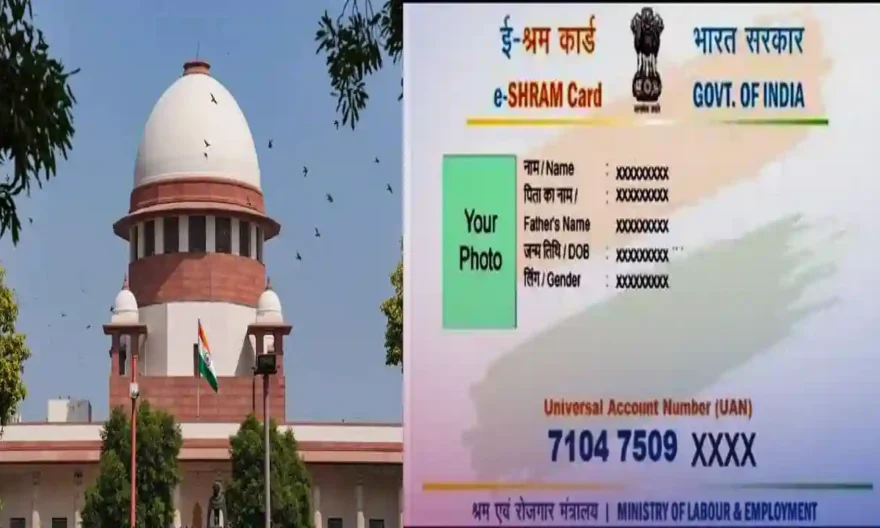
The Supreme Court on Thursday ordered the state governments to grant ration cards within three months to migrant or unorganised workers who do not have them but are registered on the central government’s e-Shram platform.
The order was passed by a bench led by Justice MR Shah in response to an application filed by activists Harsh Mander, Anjali Bharadwaj, and Jagdeep Chhokar alleging non-compliance by the union and certain states with the Supreme Court’s directives on dry rations and open community kitchens for migrant workers issued in 2021.
Advocate Prashant Bhushan, standing on behalf of the petitioners, highlighted that due to the lack of the most recent population numbers, over 10 crore people were left without even ration cards under the protection of the National Food Security Act, 2013.
It was emphasised that the coverage under the food security law, which was based on the 2011 census, was drastically inadequate.
“At the moment, we give the concerned states another three months’ time to undertake the exercise of issuing ration cards to the ones left out registered on the e-Shram portal by giving wide publicity and direct the concerned state or union territory to approach such people through the district collectors’ office so that more and more people registered on the portal are issued ration cards, allowing them to benefit from benevolent schemes by the Centre and state governments and benefit of the National Food Security Act, 2013,” the bench stated.
The bench ordered the central government to file a status report and scheduled the matter for further hearing on October 3, 2023.
In a previous hearing, the Supreme Court directed the central and state governments to provide information on whether the 28.55 crore migrants/unorganized workers registered on the e-Shram portal had ration cards and whether all of them had received food benefits under the National Food Security Act, which entitled rural and urban poor to receive subsidized food grains through the Targeted Public Distribution System (TPDS).
The bench stated that simply registering on the portal was insufficient. It was critical that the benefits of the government’s charitable initiative reached the lowest of the poor.
“We are not interested in sharing data between the states and the Centre. We’re curious whether skilled or unskilled migrants are taking advantage of the programmes. The government should contact every migrant, beginning with those who are already registered,” Justice Shah informed additional solicitor-general Aishwarya Bhati.




